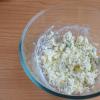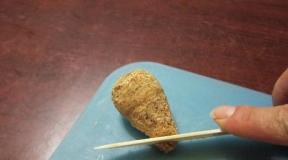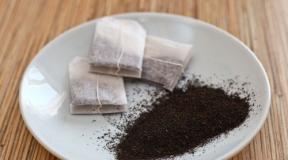Are dairy products good for you? What are the benefits of dairy products and who is better to refuse them.
One of the most important conditions for a healthy lifestyle is proper nutrition. A healthy diet includes a wide variety of foods. They all contain certain vitamins and minerals that our body needs. These are meat, poultry, fruits, vegetables, and dairy products. Both the benefits and harms of all of the above are now and then questioned by nutritionists. This is especially true for dairy products. It would seem that this is a product that we use from birth. However, with age, it becomes not so useful for our body. Let's understand its properties and find out who should give up dairy and fermented milk products.
Composition and properties
First of all, it is worth analyzing the properties that dairy products have.
- They are high in protein and fat. Proteins contain amino acids, without which the existence of the human body is impossible. At the same time, the proteins contained in milk are absorbed better than those found in meat.
- Milk fat is essential for the formation of our immune system. He is also responsible for the synthesis of hormones. Saturated fat contains cholesterol, which is needed for the intestines and liver to function.
- Also, dairy products contain salts of iodine, iron, phosphorus, potassium and calcium. The latter are especially important - they are necessary for the growth and strengthening of bones.
Separately, it should be said about the benefits and harms of fermented milk products. They differ from ordinary milk, have a different composition and properties.
- These products are distinguished by the fact that they are very quickly absorbed. So, kefir is digested about three times faster than regular milk.
- Lactic acid in their composition inhibits the spread of pathogenic bacteria. Usually pathogenic flora lives in large numbers in the intestines, but when an acidic environment is created, many of its representatives die.
- They contain a greater amount of trace elements. And the concentration of various acids necessary for our body in fermented milk products is eleven times higher than in milk.

Benefit
The positive effect of consuming dairy products is obvious.
- The calcium they contain strengthens bones, hair and nails. This is important for both children and the elderly, whose bones are becoming increasingly fragile.
- This is a good product for those looking to lose weight. Milk is quite nutritious and does not make you feel hungry.
- It is a prophylactic agent, reducing the risk of cardiovascular diseases.
The use of fermented milk products is to normalize digestion - everyone knows how kefir is useful for constipation and poisoning. For the same reason, fermented milk products are suitable for losing weight.

Harm
But not everything is so simple with milk products. They can also be harmful.
- Not all calcium contained in milk remains in the human body. Due to the substances contained in the composition of the products, which are oxidizing agents, part of the calcium goes to neutralize them. In rare cases, calcium can also be used, which was already in our body.
- Once in our body, lactose is split into glucose and galactose. And if the first is absorbed and becomes a source of energy, then the second is not excreted, but accumulates in the joints. This can lead to arthritis and cellulite.
- Milk can be dangerous if sourced from infected cows. If you have a negative attitude towards products from a supermarket with a long shelf life and buy natural milk, then try to find out all the details about the conditions of keeping cows.

Indications
Who needs to drink milk and consume dairy products?
- For children - to form the skeleton and prevent diseases of the musculoskeletal system.
- To old people. They need milk to prevent bone diseases, to preserve their teeth.
- Athletes. Protein in foods is essential for building and strengthening muscles.
Fermented milk products will be useful for people suffering from constipation and flatulence (it is caused by the spread of harmful bacteria in the body, and kefir and yoghurts help to stop this), as well as those who are losing weight: these products are very nutritious and satisfying.

Contraindications
Milk should not be consumed in the following cases.
- If you have an intolerance to this product. It is caused by the inability of the body to produce enzymes that are necessary for the digestion of milk and milk products.
- With exacerbation of chronic intestinal diseases.
- Before the operation.
- In some cases, with liver problems, which will be discussed in more detail below.
- For kidney problems. Stones are a serious contraindication.
It is better to refuse kefir and yoghurts for the following categories of persons.
- Small children - they are not yet able to digest these foods.
- People suffering from gastritis with high acidity: kefir will only aggravate the situation.
- Suffering from hepatitis.

For women
According to recent studies, milk is beneficial for women as it reduces the risk of uterine fibroids and ovarian cancer. For prevention, you must drink at least two glasses of the product a day.
The micronutrients in milk affect the body's ability to produce collagen. This element is essential for maintaining youthful skin and helps fight the appearance of wrinkles.
The benefits of fermented milk products are also:
- the calcium contained in them is absorbed better than that included in the composition of milk, therefore, thanks to kefir, nails and hair are strengthened;
- they remove toxins from the body.

For men
Milk is especially beneficial for men who play sports. Thanks to this product, the muscle building process will go much faster. Dairy products can be called natural analogues of protein shakes.
Some experts believe that dairy products have a positive effect on potency.
However, with excessive consumption of milk, there is a risk of developing cancer. This is caused by a large amount of estrogen - with its help, they achieve year-round milk from cows.
It is healthier for men to consume baked milk.

For children
It is important to know that milk can only be given to children after the age of five. It is worth starting with small portions to make sure that the child's body is exactly ready for this.
Attempts to teach babies to cow's milk at an earlier age can lead to allergies, dehydration and diabetes.
Milk will be useful for a child who has reached the required age, as it:
- necessary for the proper functioning of the cardiovascular system;
- has a positive effect on the formation of the nervous system;
- is a reliable remedy for insomnia;
- strengthens the immune system;
- helps to cure a sore throat - children often catch colds, and many cough medicines are still contraindicated for them. In this case, warm milk helps out, which must be mixed with a tablespoon of honey. This drink tastes good, which is also important for children.

With pancreatitis
There are many dietary restrictions for patients with pancreatitis. However, they do not apply to kefir. On the contrary, this fermented milk product is useful and recommended for consumption, but taking into account some important points.
- It can be consumed ten days after an exacerbation. Kefir will be a great dinner that will not overload the digestive system. Moreover, it is quite satisfying.
- When the disease recedes, the product can be drunk at any time of the day. It is also used as a fruit salad dressing. But you cannot exceed the established rate - one glass of drink per day.

With diabetes
The benefits and harms of dairy products are generally a controversial topic. But this is especially true of the use of milk by diabetics. Previously, everyone agreed that this drink is good for diabetics. You just need to know about some restrictions.
- Do not drink fresh milk. Because of it, the level of glucose in the blood rises.
- You can drink only low-fat or skim milk.
- There is also a quantitative limitation - no more than two glasses a day.
- Special care must be taken when consuming yoghurts. Check their composition carefully. They usually contain a lot of added sugar.
Polzateevo magazine advises diabetics to give preference to goat's milk, as it does not contain glucose and galactose.

For the liver
Milk is very good for the liver. It contains phospholipids that strengthen the cell walls of the organ. But in case of liver diseases, the use of milk is an individual question. It helps some people to relieve the condition. Some people are allergic.
But kefir and yogurt prevent fatty liver. It is this that causes cirrhosis and even cancer.
During exacerbations of liver diseases, you can (with the permission of the doctor) try the kefir diet - consume five glasses of the product a day. This helps to restore the functioning of the organ.

How to use
A healthy adult should consume no more than two glasses of milk a day. The same applies to kefir. In exceptional cases, the amount can be increased - if kefir is used for medicinal purposes.
Children should not drink more than one glass of milk a day. Fermented milk products are contraindicated for them.
Output
Dairy products have always been considered an essential part of a healthy person's diet. However, studies conducted in recent years have questioned their usefulness.
Milk, kefir and yogurt have many health benefits. But in some cases, they also bring harm. Listen to your body and consume these foods within acceptable limits. This will help avoid unpleasant consequences.
Answers Konstantin Spakhov, gastroenterologist, candidate of medical sciences:
On the other hand, you completely in vain give up all milk products. They are designed in such a way that they contain much less lactose than milk itself, and in some there is practically no lactose, and they can be called lactose-free. For example, when, due to the sanctions, the import of cheeses from many European countries was banned in Russia, many producers "rebuilt" and began to supply lactose-free cheeses to Russia. Since practically no lactose-free dairy products were produced in Russia, their import was allowed. The paradox is that the suppliers have changed only the label of the cheeses, indicating on it the magic word - "Lactose-free". In fact, almost all cheeses are lactose-free and you can eat them without any problems.
Nature arranged it in such a way that when fermented milk products, cottage cheese and cheeses are made from milk, the amount of lactose in them decreases. When milk is fermented, lactobacilli destroy milk sugar and its amount becomes significantly less. When cottage cheese is made, fermented milk, which has become a curd curd, is squeezed out of the water - and the rest of the milk sugar leaves with it. When the curd matures into cheese, the lactose becomes even less. So even those who cannot consume lactic acid products - this happens with a serious lack of lactase - cottage cheese and cheeses do not cause reactions.
What is in a glass of milk (as a% of daily requirement)
Useful material
- Calcium - 25%
- Vitamin B2 - 22%
- Vitamin D - 21%
- Phosphorus - 18%
- Vitamin B12 - 15%
- Protein - 13.5%
- Selenium - 11%
- Potassium - 10%
Unhelpful substances
- Milk fat * - 6.4-8 g
- Lactose - about 10 g (milk sugar) **
* There is debate about the usefulness or harmfulness of milk fat, but so far it is still considered not very useful, since it belongs to saturated (hard) fats.
** Since milk is unsweetened, many people do not even realize that it contains sugar. In fact, lactose does not have a bright sweet taste, but it does have other negative properties of sugars. One glass contains about 2 teaspoons of milk sugar.
Curd is the perfect product
Not only is almost all milk sugar lost during the production of cottage cheese, it contains a huge amount of high-quality milk protein - the most important component of our food. There is much more protein in cottage cheese than in any drinking fermented milk products. Moreover, it also contains useful lactobacilli.
Cottage cheese is very satisfying and helps to build muscle. To get as much protein as is contained in just 100 grams of 9% cottage cheese, you need to drink 600 ml of milk. But with it, you get twice the fat plus 6 tablespoons of milk sugar.
There are fewer of them than in yogurt or other sour milk, but you should not discount them. But the most useful calcium in cottage cheese is 1.5 times more than in them or in milk, and phosphorus - almost 2.5 times.
In addition, there are a lot of phospholipids in cottage cheese. These substances are important for the body - they prevent the harmful effects of cholesterol.
 Pyotr Obraztsov, candidate of chemical sciences:
Pyotr Obraztsov, candidate of chemical sciences:
Many people believe that cream does not form on the surface of modern milk, and when boiled, foam is formed, because it is powdered. This is not entirely true. Cream is only formed on the surface of milk that has not undergone so-called homogenization.
Such milk contains fat globules, which, being lighter than water, float and stick together - this is how cream is obtained on the milk surface. It remains only to remove them. And if such milk is boiled, then foam is baked on its surface. This does not work with modern milk, because it is homogenized. This means that immediately after milking, the cow is specially beaten to break up the fat globules. As a result, the smallest particles of milk fat are formed, which do not float, but form a suspension - a suspension in milk. This is done so that the milk does not stratify (that is, does not form cream), which is necessary for its industrial processing.
Encyclopedia of fermented milk products
There are many fermented milk products, and almost all of them are healthier than milk. There are several reasons for this.
They contain probiotics are beneficial microorganisms that attach to our microflora in the intestines. They help her fight harmful bacteria and synthesize vitamins and some other useful substances. Probiotics are of two types. The first are those microorganisms that ferment milk themselves. They are always present in fermented milk products. The latter are added on purpose, they do not take part in the production of fermented milk products, but they make them even more useful. In this capacity, bifidobacteria are most often added. Usually the particle "bio" is added to the name of such products: biokefir, bioyogurt, etc.
They always contain significantly less milk sugar., the negative effects of which you already know.
They are easier to digest than milk.... This seems counterintuitive, since it is well known that liquid foods are better digested. This is correct, but in the case of milk, everything is different. In the acidic environment of the stomach, milk proteins quickly coagulate into a dense and difficult to digest clot. Moreover, it is usually quite large - you could hardly swallow it whole without chewing. As a result, the stomach together with the intestines must work for a long time, crushing the protein clot. Therefore, milk is one of the most difficult to digest foods.
| Product | Leaven | Taste | Special- ness production leadership |
Benefit and harm |
| Mixed fermentation products - lactic acid and alcohol | ||||
| Kefir | Kefir fungi, without the addition of other microorganisms nizms |
Acidic loky, slightly spicy |
Healthier than yogurt, as its microorganisms take root in the intestines. Inhibits the growth of tumors. Moderately lowers cholesterol. Reduces food allergies | |
| Acidophilus | Acidophilus naya stick, lactococcus and kefir fungi |
Slightly spicy, refreshing dying |
The most powerful anti-putrefactive product in the intestines |
|
| Ayran | Thermophile strepto- cocci, bol- Gar's stick and yeast |
Acidic loky, sometimes salty wadded |
Water is often added after fermentation | Helps with a hangover |
| Koumiss | Bulgarian and acidophilus naya sticks and yeast |
Refresh- sour, sour acute |
Made from mare's milk | It is considered especially useful for tuberculosis and other lung diseases. But there hasn't been much research done. Has anti-hangover action |
| Product | Leaven | Taste | Special- ness production leadership |
Benefit and harm |
| Products of only fermented milk fermentation | ||||
| Just- kvasha |
Lacto- cocci and / or thermo- filial strepto- cocci |
Pure sour onion |
Pasteuri called milk is fermented at 35-38 ° С |
Prevents the development of candidiasis and other fungal diseases |
| Yogurt | Thermophile strepto- cocci and Bulgarians kaya stick in equal proportions niyah |
Acidic dark, fairly viscous and white |
It is sweet only with added sugar or sweetened titeles, berry, fruit and other flavors create a taste romatic additives. Fortunately, in others, sour all this food chemistry is practically not used in dairy products |
There is evidence of a protective effect in some types of cancer, especially the bladder |
| Bioyogurt | The same, but with the addition with bifidus bacteria, acid- fillet sticks or other probio- ticks |
Very good with dysbak- theriosis |
||
| Mechni- kovskoy simple kvasha |
Thermophile strepto- cocci and Bulgarians kaya stick |
Pure sour onion |
Close to yogurt in action | |
| Ryazhenka | Thermophile strepto- cocci with the addition with or without pain garskoy sticks |
Pure sour loky with priv- a piece of stewed milk. Color light cream |
Made from baked milk (often with the addition of cream) |
The action is close to yoghurt, but contains end products of glycolysis (AGE), which form eaten by languishing milk - they are not useful, especially for diabetics |
| Varenets | Thermophile strepto- cocci |
Pure sour onion with a taste of stewed milk. Color from white to light cream |
Made from heat-treated milk work at 97 ± 2 ° C. It's kind of slightly melted |
Also contains CNG, but in smaller quantities |
Milk and dairy products have been with humans for millennia. The Mediterranean diet and Ayurveda include milk and dairy products as essential for health, but modern dietetics are not so supportive. Whom to believe and how not to harm your body? In order to make the right decision, you need to have sufficient information about the product and be well aware of the individual characteristics of your body.
Useful properties of milk
Man is the only animal that drinks milk after leaving infancy. Many experts believe that this is one of the reasons to abandon this product. But the history of drinking milk goes back more than one thousand years; it has become a part of our diet for a reason. Milk contains many trace elements in an easily digestible form. First of all, these are vitamin D, potassium, calcium, phosphorus, magnesium, B vitamins, vitamin A. Milk contributes to the good functioning of the cardiovascular system and the brain. It is a source of protein and fat. Fermented milk products improve digestion, heal the intestinal microflora.
Allergies and intolerances
Despite its beneficial properties, milk can be contraindicated for many people, because it is one of the most allergenic foods. Milk digestion problems can be experienced by people with lactose intolerance, allergies, or sensitivity to casein, a protein from cows.
Lactose intolerance occurs when the body does not produce enough enzymes to digest milk. Most often we are talking about pure milk; many people with lactose intolerance have no problems with the use of fermented milk products. But there are times when even a small amount of milk can cause bloating or diarrhea. For such cases, there are dairy products with the addition of the necessary enzymes.
Milk allergy manifests itself in a different way. This is a skin reaction, pain in the gastrointestinal tract, vomiting, sometimes diarrhea, asthma and pneumonia. In case of allergies, dairy products of all types should not be consumed.
Sensitivity to casein does not have acute symptoms, so many do not even suspect that frequent colds, runny nose, acne, and internal inflammation are caused by milk. After dairy products are removed from the diet, the symptoms disappear.
Milk harm
Some studies collect information about the dangers of dairy products. Perhaps the most famous of these is Colin Campbell's China Study, which examined families in China's provinces, their diet, lifestyle and disease for 20 years. As a result of the study, the author came to the conclusion that animal products, including milk, lead to the development of cancer. The book has become a world bestseller and the "bible" of vegetarians. But many nutritionists have repeatedly criticized this study. There are many factors that affect health. Nutrition, food quality, physical activity, ecology, psychological state, environment, etc. Therefore, even with a strong desire, it is impossible to say with 100% accuracy that a specific product is to blame for the development of a particular disease.
The effect of milk on inflammatory processes in the body is a real fact, but we are talking more often about sensitivity to casein, and not the harm of milk for all people who consume it. Cow protein sensitivity is far more common than we think.

Hazardous production
The real harm of milk to our health, which needs to be discussed, lies not in the milk itself, but in the way it is produced. The production of milk on an industrial scale leads to the fact that the cows do not lead their usual way of life. They do not walk on the grass, but spend their lives in cramped stalls and eat compound feed, which affects the composition of milk for the worse. In addition, in such conditions, cows often get sick, so they need to be injected with antibiotics. And in order to have more milk, hormones are used. During pasteurization, antibiotics and hormones do not disappear, but enter the human body. As a result, the digestive and hormonal systems and immunity suffer. If giving up milk is not an option, you should switch to farm and village products. There is no guarantee that they will not contain hormones and antibiotics, but the concentration will definitely be lower than in store milk, and the nutrition of such cows is much richer, which means that the milk composition is better.
Strengthening bones
For many years, milk was considered a good source of calcium because it is present in abundance in the composition. But many studies, including Harvard, have shown that milk not only does not prevent bone fragility, but also contributes to the development of osteoporosis when consumed more than 3 glasses a day. One of the reasons for this is the excess content of vitamin D in milk. This vitamin is essential for our body and for the absorption of calcium, but too much disrupts this process.

Milk and Oncology
The English medical journal Lancet published the results of research by scientists from Harvard, led by Daniel Kramer, linking milk consumption and the development of ovarian cancer in women. The milk carbohydrate lactose in our body turns into galactose, which in turn breaks down into enzymes that can affect the state of the ovaries. But it depends on the individual characteristics of health. Milk has a negative effect on those women who do not have enough of their enzymes in the body. Milk can also affect the development of prostate and breast cancer.
Controversial issue
Confusing information can confuse anyone. If you are serious about your health, it is best to get tested for food allergies, intolerances and sensitivities. Natural dairy products, and especially fermented milk products, have many beneficial properties, but you shouldn't consume more than three servings a day. Also, try to choose farm or village dairy products that are free of colors, flavor enhancers, flavors, stabilizers, or other additives.

Perhaps your stomach has cleared up a bit. Or the cheese plate eaten over the weekend was too large. In any case, you are thinking about giving up dairy products for a while (long or short). Here's what you need to know before filling your refrigerator with soy foods and other alternatives.
Positive changes
Avoiding dairy products can bring the following benefits:
- Weight loss. Despite the fact that there is no scientific evidence that there is no link between avoiding dairy products and losing weight, numerous studies show that veganism is the best solution for those who want to lose extra pounds. But at the same time, you will need to give up a lot, and not just butter.
- Improving facial skin. Regardless of whether you suffer from acne or pimples, milk can be the culprit. The fact is that it contains testosterone, as well as hormones that make the sebaceous glands work more actively. Avoid dairy products, and your skin will only be grateful to you.
- Reduced allergy symptoms. Dairy products interfere with mucus production, which makes life worse for people with seasonal or other allergies.
In addition, the rejection of these products also has a positive effect on the body, in particular on the digestive system. Even if you are not lactose intolerant, you may be sensitive to it. This may be indicated by symptoms such as bloating, heaviness, and other similar moments. Try to give up milk and its relatives for a while and check if this has benefited the body.

Negative consequences
Refusal from dairy products is fraught with negative effects:
- Lack of probiotics. Yogurt and other fermented milk products are a valuable source of beneficial bacteria. Refusal to eat such food can lead to poor digestion. In addition, replacing milk with soy products can only exacerbate the problem, as it puts additional stress on the digestive organs. An alternative might be to use a variety of probiotic supplements.
- Weight gain. Despite the fact that avoiding dairy products in general contributes to weight loss, it can lead to the opposite result. The fact is that dairy products take a long time to digest, so they satisfy hunger well. Adding simpler carbohydrates to your diet can lead to weight gain. In addition, you need to take care of the proper source of healthy fats and proteins, including eggs, nuts, etc.
Since dairy is the main source of calcium, alternatives must be sought. Preference should be given to leafy vegetables, spinach, broccoli, as well as oranges, oatmeal and beans.

Output
The impact of dairy products on the human body is very individual. Therefore, you should not completely turn out to be from them just in order to lose a couple of kilograms. However, if after breakfast cereal and milk you feel very well, then the use of milk should be reduced. If you've decided to skip dairy entirely but need to find good alternative sources of vitamins and beneficial bacteria.
Or allergies? And I want to replenish the body every day with all the useful elements that are contained in such food, but without harming my health. There is more than one way out of this situation.
How is milk useful for the body of children and adults?
Before deciding which foods you can substitute for dairy products, you need to know what are the benefits of them.
Milk can rightfully be considered a storehouse of essential nutrients. Especially for a young and growing organism. It is not for nothing that breast milk is considered the most useful in the first year of a child's life. It contains protein, fat, vitamin D. But the body of an adult can do without milk, replenishing the necessary substances from other food products.
Unfortunately, not everyone benefits from milk. There are people who are allergic to it. Their body is not able to assimilate lactose (sugar in milk). The reason for this is, or rather, its absence in the body. This disease is also called lactose intolerance. You may also be allergic to milk protein. It is clear that in this case you need to look for something to replace dairy products. More on this later in the article.
When should you eliminate milk from your diet in order not to harm your body?
Before giving up a product, you need to know in which cases milk is definitely contraindicated.

- Dairy products are difficult to digest. That is, there are problems with the digestion of lactose or protein. This is expressed by cramps, bloating and stool disturbances. True, when milk is boiled for a long time, protein and sugar are destroyed. But along with them and useful substances. Therefore, boiled milk cannot turn sour, but can only deteriorate. And there is not much benefit from it.
- When after drinking milk, especially if it is drunk on an empty stomach, there is a jump in blood sugar. This is a temporary phenomenon. And overweight people are in great danger.
- If dairy products increase the allergic reaction. This does not mean that you are allergic to this particular product. For example, a person develops a rash in Fig. But only when rice is consumed in pure form and in large quantities. If you do not overdo it, then you can eat such porridge. And when drinking milk, an allergy to rice appears even with a small amount of allergen in food.
- It is often not advisable to buy milk from the store. Since on farms, to increase milk yield, cows are given hormonal agents. And so that the animal does not get sick, it must be vaccinated with antibiotics. It is clear that such a product is not useful in itself.
- Natural milk provokes the growth of cancer cells. This happens due to the acidification of the constituent substances of milk in the body.

It turns out that this product is not always useful for humans. And you have to look for what you can replace dairy products with. There is an alternative to such products. Let's take a look at them.
Soy milk
It is the most popular milk replacer. To prepare it, you need to soak the soybeans, crush them, squeeze the liquid out of them. Soy contains enough protein compared to other milk replacement products. But compared to natural protein, protein here is not so actively involved in muscle building. Soy milk is also rich in potassium.
Almond milk
To obtain it, you need to grind almonds with water and filter the liquid from solid particles. Such milk contains less protein than natural and soy drinks. But it attracts with its aroma and improves the taste of food cooked on it. But the texture of almond milk is close to natural. In addition, almond milk is low in calories and is suitable for dieters.

Cashew milk
Prepared in the same way as almond milk. Has a creamy texture. Such milk is rich in zinc, calcium, vitamins B12 and D. But whether these nutrients are absorbed as well as natural milk, there are no definite answers yet.
Hemp seed milk
It is prepared in the same way as the previous drinks. This milk has a rather specific taste. It does not contain narcotic ingredients. Therefore, milk is completely legal. In addition, if you are wondering what to replace dairy products with for allergies, then hemp is an ideal alternative. It contains enough protein, fatty acids and iron. But to mask the bitter taste, sugar is added to the hemp milk. Therefore, it may not be suitable for people with lactose intolerance.
Coconut milk
For cooking, grate the flesh of the coconut, squeeze the juice out of it. Next, the resulting extraction must be mixed with coconut liquid and water. The structure of the drink is close to whole milk. And contains many useful elements. But there is no protein in such a drink, plus sugar is often added. Therefore, it is not the best alternative to a natural drink.
Rice milk
A drink is prepared from boiled rice, water, rice syrup and rice starch. This milk tastes sweet. Therefore, it is often used in cocktails, added to coffee, desserts. Milk contains enough calcium and vitamin D.
Oatmeal milk
The preparation method is the same as for rice milk. This drink contains vitamin E, folic acid. It is free of lactose and cholesterol. And also there is no protein and calcium.
Lactose-free and other types of milk
Replacement of cow's milk with goat, sheep, buffalo and so on is not excluded. Lactose-free cow's milk is no less popular. In fact, this is regular milk. But it has added enzymes that help to absorb lactose. This option is suitable for those who have problems only with the digestion of sugar in milk.

Foods that contain beneficial substances
Among the listed analogs, you can pick up a drink that replaces the cow. But it so happens that not a single option is suitable. Or the person just doesn't like milk. Then how to replace dairy and fermented milk products? In this case, the following products will help to replenish the body's reserves with the substances contained in this food.
- Increase the intake of vegetables and fruits in the diet. They will well replenish the body with the necessary nutrients. They also normalize the work of the digestive system.
- Vitamin D can be obtained from walking in the sun.
- Eating dried fruits helps replenish the body with the necessary reserves of vitamins and minerals. And if you are interested in how to replace calcium from dairy products, then know that with dried fruits. So eat more of them.
- Nuts are high in protein, fat, and minerals.
- If the body lacks calcium, then herring will help to replenish it.
Now it is clear how to replace dairy products. As you can see, the choice is large, for every taste and budget. One has only to make a choice. Although sometimes it happens that there are no prohibitions on the use of milk, but they do not drink it. This mainly applies to children.

How to replace dairy products for a child
Children are still gourmets. Therefore, most often the crumb refuses to drink milk, kefir. There is also a way out of the situation in this case.
The main thing is not to force milk into the baby. Remember that all children have a sweet tooth. You can add fresh berries and sugar or jam to milk and make a cocktail. You can also prepare meals from dairy products. It can be porridge or casseroles. They can also be decorated with jam or condensed milk, which is also made from milk. And modern yoghurts will not leave indifferent any kid. The main thing is to read the composition of the product. It happens that children give preference to drinks that replace milk. These are soy or coconut drinks.
But if the baby flatly refuses any products containing milk, then vegetables, dried and fresh fruits, nuts will come to the rescue.
Products for a child who does not drink milk
How to replace dairy products for a child?
The main products for replenishing the necessary useful elements:
- buckwheat (porridge, buckwheat soups);
- oatmeal (again in cereals and soups);
- softened raisins;
- dried apricots, pitted;
- slices of dried apples;
- any green vegetables;
- carrots, preferably fresh, can simply be grated and sprinkled with sugar;
- onions, it must be in soups;
- white cabbage (you can cook more than one dish from it);
- boiled chicken;
- boiled sausage;
- rye and wheat bread;
- fish and dishes from it;
- any cookie.
All of the above is usually found in the baby's diet. But there are also exceptions. Therefore, if you are interested in how you can replace dairy products for a child, when he completely refuses milk, then you should pay attention to the above food.
If there is a strong lack of calcium in the baby's body, then you can replenish its reserves with a medication. Buy children's vitamins that have missing elements.
Do not give dairy products to your baby by deceit or persuasion. This can develop a lifelong aversion to milk. Then even at the age of eighteen it will not be possible to persuade an adult child to use this product.

Allergy to milk. What to do and use in this case?
How to replace dairy products with milk allergy? This is especially interesting for young mothers who have lost their milk, and there is no trust in the mixtures (and they are expensive too).
- If there is even a drop of opportunity to preserve your milk, then superhuman efforts must be made to this. The health and development of the child depends on this. Up to 6 months, it is difficult for a baby to digest any product, except for mother's milk. Foreign milk can cause big problems with the digestive system and give rise to the development of allergies.
- When there is no chance of restoring your own, then before looking for a replacement for a cow (since there is a suspicion of an allergy), you need to find out from the doctor what exactly the reaction is going on. To do this, you must contact your pediatrician.
- But it so happens that the allergy goes to breast milk. Having found out the exact cause of the allergy (what causes it, what constituents), you can look for substitutes. Although here the main advice should be given by a gastroenterologist.
- In the old days, it was advised to try to give the child goat or sheep milk. They are less allergic. But this option is already outdated.
- You can try giving your baby soy milk or its analogues. The main thing here is to choose according to taste and so that there is no allergen in the composition. Each analog is good in its own way. There are pros and cons.
- When none of the proposed options for milk replacement is suitable, and the baby is still very small, then you will have to buy expensive hypoallergenic formula for feeding. And from 4 months, start introducing complementary foods so that the child can fill up faster and get the necessary vitamins and minerals not only from the formula for feeding.
Fortunately, it happens that by the year the body gets stronger. And the milk allergy goes away. Then dairy products can be consumed. But to introduce into the diet not immediately in liters, but gradually.
It turns out that replacing cow's milk completely for a child with one product will not work. Much easier to find than replacing dairy products for adults. And it often happens that an allergy or dislike for dairy products comes from childhood. Mom either did not pay attention to the reaction of the body and aggravated the situation, or forced to use it through force.
A little conclusion
Now you know how to replace dairy products for an adult and a child. As you can see, the list of products is long. Cow's milk is an important food. Therefore, it is worth looking for a way out of this situation when you cannot drink milk. Often the product is excluded when dieting. In this case, analogs of milk, vegetables, fruits or vitamin complexes will come to the rescue. If it is not possible to make the right choice on your own, then you can seek help from a gastroenterologist.



















